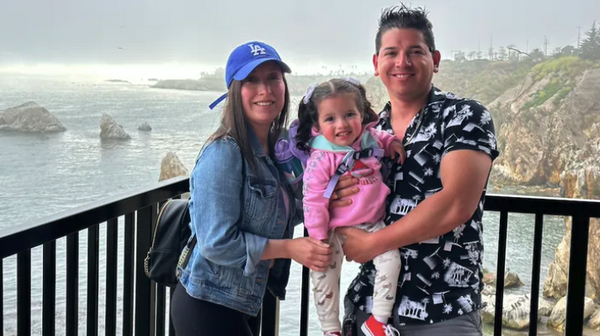
Athens, Greece – For the first time in almost 10 years, Greece does not find itself on the front lines of a European refugee crisis.
Instead, thousands of Ukrainians displaced by Russia’s full-scale invasion have poured into Poland and Romania, where they have been welcomed with camps and shelters.
It is a far cry from the barbed wire fences that went up on the Polish and Lithuanian borders with Belarus to prevent Syrian asylum-seekers from coming across last year.
“The European Union and its member states have provided, and will continue to provide, political, financial, humanitarian and logistical support in the face of Russian aggression,” said French interior minister Gérald Darmanin, who chaired an extraordinary session of justice and home affairs ministers on Sunday.
He has activated the EU’s Integrated Political Crisis Response mechanism, under which ministers are to convene on Monday to discuss allocation of aid.
On Sunday, EU migration commissioner Ylva Johansson said more than 300,000 refugees had already entered the EU, and the bloc needed to prepare for millions.

The EU’s response to Ukrainian refugees has raised cries of double standards among aid groups.
“What troubles me is why we demand that [Russian President Vladimir] Putin stop the war but we’re not applying the same pressure to end wars in Yemen and Syria,” said Apostolos Veizis, head of INTERSOS Greece aid group.
“It’s good to open the doors to anyone who deserves asylum, and there’s room for all because we’re organised countries and we need workers,” said Melina Spathari, an advocacy manager for refugees. “But it’s not good that Europe discriminates between different asylum seekers, Ukrainians versus Muslims and coloured people.”
The EU on Sunday activated Temporary Protection status for Ukrainians, an extraordinary measure first designed for Yugoslav refugees in the 1990s, but never used.
“Temporary Protection status means they won’t need to do an asylum application for a year, extendable to three years. They are considered de facto refugees,” said Veizis.
“This is a population that interests [Europe]. When a million Ukrainians left in 2014, the EU did not complain. But it’s easy for this to turn, and for the same derogatory things that were said about non-European refugees to one day be said of Ukrainians.”
Previous refugee crises
The Ukrainian crisis comes after two events that hardened EU refugee policy. A few months ago, Belarus attempted to create a refugee crisis on its EU borders with Poland and Lithuania – in imitation of what Turkey tried to do on its border with Greece two years ago this week.
On February 27, 2020, Turkey announced it was opening its borders to asylum-seekers crossing to Europe. Observers believe Ankara was trying to win EU support for its military operation in northern Syria.

“What Turkey tried to do in March 2020 was to have a mass intrusion of more than 150,000 people in the north within a few days,” said a Greek government official who was present at high-level meetings at the time.
Turkey’s interior minister Suleyman Soylu threatened to release a million refugees into Europe.
“Europe cannot endure this, cannot handle this,” he told CNN Turk on February 28. “The governments in Europe will change, their economies will deteriorate, their stock markets will collapse.”
The sudden influx of even 150,000 people “would obviously be beyond any capacity to sleep, feed, protect this population”, the Greek government official said on condition of anonymity.
“And that would have led to a collapse of the country in the north. If we … were a failed state, unable to provide for anything, and there were people breaking into houses to eat because there would be no food because there are no camps for 150,000 people … I don’t know what would be the military implication if that happened.”
“We were not certain what was the intention of [Turkish President Recep Tayyip] Erdogan at that point.”

Greece says it resisted more than 42,000 attempted entries at the land border over the next two weeks, and an unspecified number at sea.
The experience transformed Greek refugee policy to one focused on security rather than humanitarian needs and obligations, and Europe supported it.
‘European shield’
European Commission President Ursula von der Leyen, European Council President Charles Michel and European Parliament Speaker David Sassoli visited Greece’s land border with Turkey on March 3 last year in a symbolic gesture of support. Ursula von der Leyen called Greece “our European shield”.
Greece has since built 12km (7.4 miles) of steel palisade on its land border with Turkey, and plans to extend it to the entire length of the border using EU funds.
At sea, refugees and aid groups have said Greece is conducting summary expulsions that deprive potential asylum-seekers of a chance to apply.
This would defy the Geneva Convention on the Status of Refugees by risking refoulment – the re-introduction of vulnerable people to environments where they could be harmed.
About 32 cases against Greece are now being considered by the European Court of Human Rights.
“Nothing has changed since,” in policymaking, says the Greek official.

Vasilis Papadopoulos, head of the Greek Council for Refugees, a legal aid group, said approving Temporary Protection was an attempt by Greece to “whitewash the practice of preventing entry by refugees”.
While events in 2020 were a catalyst, both Greece and Turkey had been hardening their border policies for a while.
In July 2019, Turkey unilaterally suspended the re-admission clauses of the EU-Turkey Statement, saying that from its point of view this had always been meant as quid pro quo for visa-free travel for Turkish nationals in the EU.
A new Greek asylum law took effect on January 1, 2020, which aimed to process asylum claims within 28 days and increase the number of returns to Turkey.
It largely succeeded. Greece reported 38,000 pending asylum cases at the end of January, down from 126,000 two years earlier.
The Greek government was already taking a stronger security approach to borders, ordering four new 30-metre (98-foot) vessels and 15 to18 smaller patrol vessels, and hiring 1,500 more people in the coastguard – effectively doubling its patrolling strength in the east Aegean.
“There is plenty of evidence that the Turkish government has weaponised migrants and refugees to exert pressure on Greece and the European Union,” said Dr Emmanuel Karagiannis, associate professor of international security at King’s College London.
“Greece has done nothing different than other governments have done regarding irregular migration: the US, the British, the Italian coast guards have equally tried to protect their borders.”
Turkey, too, has advertised that it is building a wall along its border with Iran.
Belarus crisis
Last year, Belarusian President Alexander Lukashenko copied Erdogan’s tactic of channelling refugees to put pressure on Europe – in his case for a lifting of sanctions against his government. The EU’s reaction showed how much attitudes have hardened.
“The instrumentalisation of migrants for political purposes by Belarus is unacceptable,” von der Leyen said on November 8.
She told the European Parliament that traffickers were acting as “specialised travel agents offering all-inclusive deals: visas, flights, hotels and, somewhat cynically, taxis and buses up to the border,” with the blessings of the Belarusian authorities.

Airlines carrying refugees to Belarus were threatened with the deprivation of overflight and landing rights within the EU.
The Commission tripled border management funds to Latvia, Lithuania and Poland to 200 million euros ($223m) for 2021-2022.
On December 1, it put forward a set of temporary asylum procedures on the three countries’ borders with Belarus, which allowed “simplified and quicker national procedures” to deport those whose asylum applications are rejected.
For more than a year, the Commission has tried to get member states to agree a migration and asylum pact, without success.
The sticking point is that many countries do not want an automatic burden-sharing mechanism that forces them to take on a share of asylum cases from front-line states.
“[This] means we cannot have arrivals any more, but no one wants to say that. They are all hiding behind their fingers,” said the Greek government official. “Nobody wants anybody, but they all want sort of a more open approach. It doesn’t work.”







